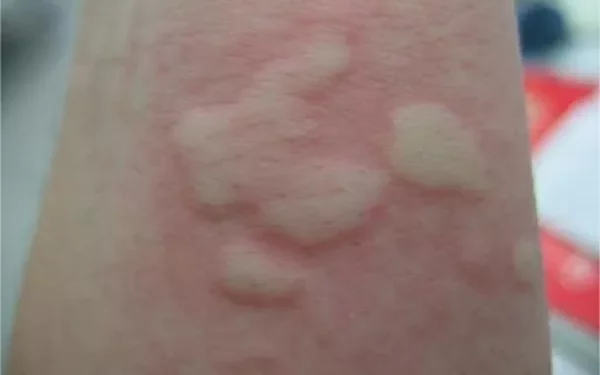Drug-induced urticaria, commonly known as drug-induced hives, is a skin condition characterized by the sudden appearance of red, raised, and itchy welts on the skin. These hives can be triggered by various medications and typically occur within hours to days of taking the offending drug. Understanding the duration of drug-induced urticaria is crucial for managing symptoms and ensuring proper treatment. This article explores the factors influencing the duration of drug-induced urticaria, treatment options, and practical tips for managing this condition effectively.
Understanding Drug-Induced Urticaria
Drug-induced urticaria is a type of allergic reaction where the body’s immune system reacts to a medication, causing the release of histamine and other chemicals that lead to the characteristic hives. These hives can vary in size and shape, appearing as small spots or large welts on the skin. The reaction can occur after taking any medication, including over-the-counter drugs, prescription medications, and herbal supplements.
Duration of Drug-Induced Urticaria
The duration of drug-induced urticaria can vary widely depending on several factors:
1. Type of Medication: Some medications are more likely to cause immediate reactions, resulting in hives shortly after ingestion. Others may cause delayed reactions, where symptoms appear hours to days after starting the medication.
2. Individual Sensitivity: Each person’s immune system reacts differently to medications. Some individuals may experience mild hives that resolve quickly, while others may develop severe reactions requiring prolonged treatment.
3. Dosage and Duration of Exposure: Higher doses of medications or longer durations of exposure can increase the likelihood and severity of drug-induced urticaria. Stopping the medication can lead to resolution of symptoms, but the timeframe can vary.
4. Underlying Health Conditions: Individuals with pre-existing allergies or conditions such as asthma may be more prone to developing drug-induced urticaria and may experience longer-lasting symptoms.
Treatment and Management
Managing drug-induced urticaria involves identifying the causative medication, discontinuing its use if possible, and providing symptomatic relief. Treatment options include:
1. Antihistamines: These medications block the effects of histamine, reducing itching and swelling associated with hives. Over-the-counter antihistamines like cetirizine or loratadine are often effective for mild cases, while severe reactions may require prescription-strength antihistamines.
2. Corticosteroids: In more severe cases or when hives persist despite antihistamine treatment, oral corticosteroids may be prescribed to reduce inflammation and suppress immune responses.
3. Avoidance of Triggers: Once the causative medication is identified, it should be avoided in the future to prevent recurrence of drug-induced urticaria.
4. Cool Compresses and Moisturizers: Applying cool compresses or taking cool baths can help relieve itching and discomfort. Using moisturizers regularly can also soothe dry, irritated skin.
Duration Based on Medication Type
The duration of drug-induced urticaria can vary depending on the specific medication involved:
1. Antibiotics: Hives caused by antibiotics such as penicillin or sulfa drugs often appear within hours of ingestion and typically resolve within a few days after discontinuation of the medication.
2. Pain Medications: Non-steroidal anti-inflammatory drugs (NSAIDs) like aspirin or ibuprofen can cause hives that may last several days to a week after stopping the medication.
3. ACE Inhibitors: These medications used to treat high blood pressure can lead to persistent hives that may require longer treatment periods.
SEE ALSO: What Causes Hives Under Arms?
When to Seek Medical Attention
While most cases of drug-induced urticaria resolve on their own after discontinuing the offending medication, certain situations warrant medical attention:
1. Severe Symptoms: If hives are widespread, accompanied by difficulty breathing, swelling of the face or throat, or severe dizziness, emergency medical care should be sought immediately.
2. Persistent Symptoms: Hives that do not improve with over-the-counter antihistamines or that recur despite stopping the medication may require evaluation by a healthcare provider.
3. Systemic Reactions: Some individuals may develop systemic reactions beyond skin hives, such as fever, joint pain, or gastrointestinal symptoms, which necessitate medical evaluation.
Conclusion
In conclusion, the duration of drug-induced urticaria can vary based on the type of medication, individual factors, and treatment measures taken. While most cases resolve within days to weeks after discontinuation of the offending drug, prompt identification and appropriate management are essential for minimizing discomfort and preventing complications. Patients experiencing persistent or severe symptoms should seek medical attention to ensure proper evaluation and treatment.
Understanding how long drug-induced urticaria lasts empowers individuals and healthcare providers to effectively manage this common allergic reaction, promoting prompt recovery and improved quality of life.
Related Topics:


























